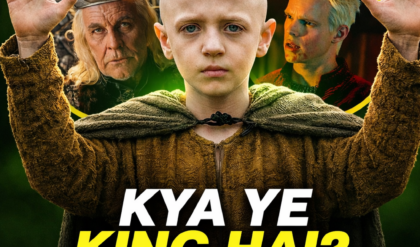⚔️ Huge bombshell for God of War 6: Insiders confirm it’s shaping up as a gripping prequel diving into young Kratos’ brutal odyssey from the blood-soaked ruins of Greece to the icy wilds of Scandinavia—unraveling the rage, regrets, and raw survival that forged the Ghost of Sparta into a reluctant father. Expect savage clashes with forgotten beasts, divine betrayals that scar deeper than any blade, and the untold fury of a god on the run. This isn’t just backstory; it’s the fire that ignites the entire saga.
Thirsty for the myths behind the myth? Grab the details and fuel your hype! 👉

The God of War franchise, a colossus of interactive storytelling that has redefined vengeance tales across two mythic pantheons, is stirring once more. With whispers from Santa Monica Studio and industry insiders gaining volume, the next chapter—provisionally dubbed God of War 6—appears poised to revisit the origins of its antihero, Kratos, in a prequel format. Set against the cataclysmic aftermath of God of War III, where the Spartan warrior unleashed a biblical flood upon Olympus, this installment would chronicle his harrowing migration from the shattered cradle of Greek gods to the frostbitten realms of Norse legend. As PlayStation 5 enters its mature phase, buoyed by over 50 million units sold for the 2018 reboot and Ragnarök, this pivot back to foundational lore arrives amid fervent fan discourse, blending nostalgia with the demand for fresh mythic frontiers.
Kratos’ canonical leap from Greece to Scandinavia has long tantalized theorists and lore enthusiasts, a narrative chasm bridged only obliquely in the series’ modern entries. The 2018 God of War, directed by Cory Barlog, thrust players into Midgard as a grizzled Kratos mourned his second wife, Faye—a Jötunn seer—while mentoring his half-god son, Atreus. Flashbacks and codex entries hinted at the Ghost of Sparta’s prior life: a demigod turned destroyer, marked by the ashen tattoos of his slain family and the Blades of Chaos that chained him to Ares’ service. Ragnarök (2022) expanded this, revealing Faye’s foreknowledge of Kratos’ arrival and his deliberate choice to sever ties with the old world. Yet the mechanics of his exodus—surviving the deluge, navigating uncharted wilds—remained a void, ripe for exploration.
Enter the rumors, first seeded by Tom Henderson of Insider Gaming in February 2025. In a podcast episode dissecting Sony’s pipeline, Henderson relayed unverified chatter from Santa Monica contacts: the project centers on a “younger Kratos,” circa his post-Olympus exile, retracing steps through Greece’s flooded remnants before veering into continental unknowns. “It’s not Egypt, as some speculated,” Henderson noted, countering earlier leaks that envisioned a third pantheon under Anubis or Ra. “This is Greece, raw and unremastered—think a leaner scope, over-the-shoulder combat evolving the old hacks-and-slashes into something more introspective.” Jeff Grubb of Giant Bomb echoed this in March, during a Game Mess Mornings stream, asserting Sony’s mandate for a PS5-exclusive title that “loops back to ancient Greece” without remastering the originals. Grubb, citing job listings for environmental artists specializing in “Mediterranean desolation and migratory biomes,” framed it as a “shorter release,” perhaps 15-20 hours, to test waters before a full sequel.
These tidbits align with broader hints. A September 4, 2025, Gaming Bible report flagged a “quiet tease” in Ragnarök’s New Game+ update: a hidden rune in the Lake of Nine, decipherable via photo mode, reads “From ashes to auroras, the wanderer flees.” Fans on Reddit’s r/GodofWar dissected it as a nod to Kratos’ 10-year gap between God of War III (circa 4th century BCE, per loose chronology) and the 2018 reboot. Wikipedia’s franchise page, updated post-comics, details the 2021 Fallen God miniseries by Dark Horse: scripter Chris Roberson chronicled Kratos’ aimless rage-fueled trek from Greece through Egypt’s sands—clashing with Set’s minions and Horus’ cultists—before a sandstorm hurls him northward to Celtic fringes and, ultimately, Scandinavia. “It’s the journey that broke him further,” Roberson told Polygon in a 2021 interview, “not just physically, but in forging the isolation that Faye would later pierce.”
If realized, God of War 6 could weaponize this comic lore into playable form, leveraging Unreal Engine 5—Santa Monica’s reported shift from their proprietary engine—for seamless transitions between biomes. Imagine: opening in Greece’s storm-lashed coasts, where Kratos scavenges Titan husks for sustenance, haunted by visions of Athena’s ghostly counsel. Progression might mirror the 2018 reboot’s one-shot camera but infuse younger vigor—quicker QTEs for chain-whip executions, environmental puzzles amid crumbling Parthenons now overgrown with invasive Norse flora, hinting at mythic bleed. As he migrates, the map unfurls: Anatolian steppes teeming with chimeric beasts, Black Sea tempests birthing Slavic echoes, until the fjords of Midgard loom, where Faye’s first sighting of the “marked stranger” sparks a fateful encounter.
Narrative would pivot on Kratos’ internal schism, a theme Barlog has championed. The pre-2018 era painted him as unyielding fury incarnate: Ghost of Sparta (2010) delved into his Spartan youth, Chains of Olympus his service under Persian kings. A prequel here amplifies that—exploring how Olympus’ fall unmoored him, nightmares of Pandora and Deimos compounding his guilt. “Kratos doesn’t flee; he drags his curse,” Barlog mused in a 2023 GDC postmortem. Allies could emerge organically: a nomadic Amazonian scout, voiced by a rising Indigenous actor, guiding through Thracian wilds; or a Celtic druidess foreshadowing Mimir’s wry counsel. Atreus’ conception might frame the endgame—a clandestine union with Faye during a solstice rite, her Jötunn visions foretelling Ragnarök’s threads. Darker beats: brushes with Egyptian fringes, where Kratos spurns Osiris’ offer of rebirth, or Slavic Leshy spirits testing his paternal denial.
Gameplay evolution beckons. The series’ combat alchemy—Blades of Chaos’ fiery arcs in Greece, Leviathan Axe’s frost runes in Norse—could hybridize early: prototype axes forged from Greek metallurgy, evolving via migratory crafts. Exploration emphasizes survival: forage for ambrosia in vine-choked acropolises, craft shelters against blizzards en route to Scandinavia. Accessibility builds on Ragnarök’s triumphs: customizable rage meters to temper Kratos’ dark impulses, haptic pulses for migratory fatigue, and narrative branches where players opt for mercy, altering Faye’s prophecy. Multiplayer? Unlikely, given Santa Monica’s single-player ethos post-Ascension’s tepid reception, but co-op vignettes—summoning spectral Atreus for combo assists—float in fan mods on Nexus.
Fan reactions cascade across platforms. Reddit’s r/GodofWarRagnarok thread from February, “Rumor: Younger Kratos Back to Greece,” garnered 145 upvotes and 72 comments, split between excitement (“Finally, the migration we deserve—think The Last of Us but with gods”) and skepticism (“Prequels cheapen forward momentum; let Atreus lead to Egypt”). X (formerly Twitter) polls by @GodofWarNews hit 70% favoring a Greece-Scandinavia bridge over Egyptian jumps, citing the Fallen God comics’ untapped depth. Push Square’s February article tallied reader votes: 55% for prequel, 30% sequel with adult Atreus, 15% pantheon pivot. Critics like IGN’s Franmil Reyes praised the potential in a 2025 retrospective: “Kratos’ silence in Ragnarök screamed backstory; this could humanize the monster without softening him.”
Commercially, the stars align. The franchise has eclipsed 66 million units lifetime, per Sony’s FY2024 report, with Ragnarök’s Valhalla DLC pushing PS5 attach rates. Tie-ins proliferate: the 2024 God of War Ragnarök novel by J.M. Barlog fleshes Faye’s arc; a 2025 Audible drama, voiced by Christopher Judge, dramatizes Kratos’ exile whispers. Merch—Funko’s young Kratos Pops, Leviathan Axe replicas from Sideshow—sustains a $1 billion ecosystem. Amid Sony’s 2024 layoffs trimming 900 jobs, Santa Monica’s stability (180 staff) underscores God of War as a tentpole, rivaling The Last of Us Part II’s cultural footprint.
Challenges loom, of course. Prequels risk retreading: Greece’s pantheon, slain exhaustively in III’s symphony of slaughter, demands reinvention—perhaps undead Olympians risen via chthonic rites, or mortal cults venerating Kratos as a false messiah. Timeline fidelity: the series’ loose historicity (Sparta’s peak circa 400 BCE clashing with Norse Iron Age) invites liberties, but purists decry “dimensional hops” as cop-outs, per Quora debates. Screen Rant’s 2022 explainer posited a grounded migration—Kratos rafting the flood’s currents to Anatolia, trekking via Silk Road analogs—aligning with Barlog’s “geographic pantheons” ethos. Diversity evolves: Faye’s Jötunn heritage spotlights Indigenous voices; a prequel could amplify Thracian or Scythian influences, consulting historians as in Ragnarök’s rune authenticity.
Technically, expectations soar. Ragnarök’s PS5 Pro patch—4K fidelity, adaptive triggers for axe throws—sets benchmarks; God of War 6 could integrate PSVR2 for migratory visions, or cloud saves for seamless Greece-to-Midgard handoffs. Release whispers: late 2027, post-Atreus spin-off teases at State of Play 2026. Barlog, back from Disney Imagineering, helms creative; Judge returns as Kratos, his baritone gravel etching deeper scars.
In an era of mythic reboots—from Assassin’s Creed Shadows’ Sengoku shadows to Jedi 3’s Vader echoes—God of War 6’s prequel gambit feels audacious yet apt. It honors the Spartan’s roar while whispering his silences, bridging ashes to auroras. As Kratos might growl amid the gales: boy, the road was never kind. But it was ours.





